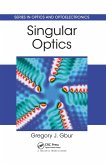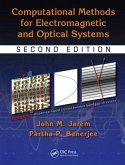This book is devoted to the consideration of unusual laser beams - vortex or singular beams. It contains many numerical examples, which clearly show how the phase of optical vortices changes during propagation in free space, and that the topological charge is preserved.
Topological Charge of Optical Vortices shows that the topological charge of an optical vortex is equal to the number of screw dislocations or the number of phase singularities in the beam cross-section. A single approach is used for the entire book: based on M. Berry's formula. It is shown that phase singularities during beam propagation can be displaced to infinity at a speed greater than the speed of light. The uniqueness of the book is that the calculation of the topological charge for scalar light fields is extended to vector fields and is used to calculate the Poincare-Hopf singularity index for vector fields with inhomogeneous linear polarization with V-points and for the singularity index of vector fields with inhomogeneous elliptical polarization with C-points and C- lines.
The book is written for opticians, and graduate students interested in an interesting section of optics - singular optics. It will also be of interest to scientists and researchers who are interested in modern optics. In order to understand the content of the book, it is enough to know paraxial optics (Fourier optics) and be able to calculate integrals.
Topological Charge of Optical Vortices shows that the topological charge of an optical vortex is equal to the number of screw dislocations or the number of phase singularities in the beam cross-section. A single approach is used for the entire book: based on M. Berry's formula. It is shown that phase singularities during beam propagation can be displaced to infinity at a speed greater than the speed of light. The uniqueness of the book is that the calculation of the topological charge for scalar light fields is extended to vector fields and is used to calculate the Poincare-Hopf singularity index for vector fields with inhomogeneous linear polarization with V-points and for the singularity index of vector fields with inhomogeneous elliptical polarization with C-points and C- lines.
The book is written for opticians, and graduate students interested in an interesting section of optics - singular optics. It will also be of interest to scientists and researchers who are interested in modern optics. In order to understand the content of the book, it is enough to know paraxial optics (Fourier optics) and be able to calculate integrals.








